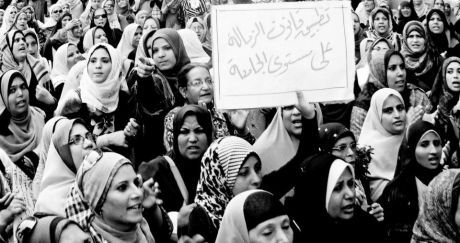News
You are here
Egypt: labour ‘reforms’ target strikes

October 5, 2012
Strikes and labour protests have spread across all sectors of the Egyptian economy in recent weeks, sparking fears among Egypt’s business class and the Muslim Brotherhood government. In response, they are trying to push a labour “reform” that would restrict the number of unions in any workplace and would impose a one-year ban on strikes.
Frustrated by the slow pace of change since the fall of Mubarak, workers are increasingly venting their anger at work, and not just in the street. According to the Egyptian Center for Economic and Social Rights, which tracks the country’s social movements, at least 300 protests took place in the first half of September—the highest number this year. About a third were general demonstrations, but the rest were strikes or labour protests, and included factory workers, government employees, teachers, university professors, hospital workers (doctors, nurses and technicians), transit workers, street vendors, tour guides, fishers, airline employees and airport workers, police officers, and even a few imams. Professional-class workers also struck, including lawyers and pharmacists.
As the number of strikes has increased, so too has the confidence of workers to form and defend independent unions—in contrast to the official, pro-Mubarak Egyptian Trade Union Federation (ETUF), which has acted as an arm of the state since the days of Nasser. Now that the Brotherhood is in power, it is seeking ways to contain the spreading strikes, and has turned to ETUF to play the same role it did under Mubarak: enforce labour “peace” on Egyptian workers. According to reports in the Egyptian media, ETUF is not opposed to a ban on strikes because it believes that it could win “concessions” from the government. But the government has refused to implement the key demands of the movement, which are increasingly economic in nature.
These developments were a major topic of discussion at a recent conference of the Egyptian National Competitiveness Council, a pro-neoliberal lobby group. Ahmed Hassan al-Borai, a corporate lawyer and former Mubarak cabinet minister, warned that strikes could spark another revolution—the same warnings he gave Mubarak when Egyptian textile workers struck in 2006: “Back then, I said that social unrest quelled by using force against striking workers might escalate one day to create a major fire that is impossible to put out.”
The 2006 strike of roughly 27,000 mainly women workers at the Misr Spinning and Weaving Company in El-Mahalla El-Kurba sparked a year-long strike wave that laid the foundation for the strikes that helped topple Mubarak in February 2011. More recently, Egyptian workers passed another milestone when strikes shut down seven chemical factories controlled by the military—the first time that workers have directly confronted the Egyptian Army’s economic power.
Section:
- Log in to post comments









